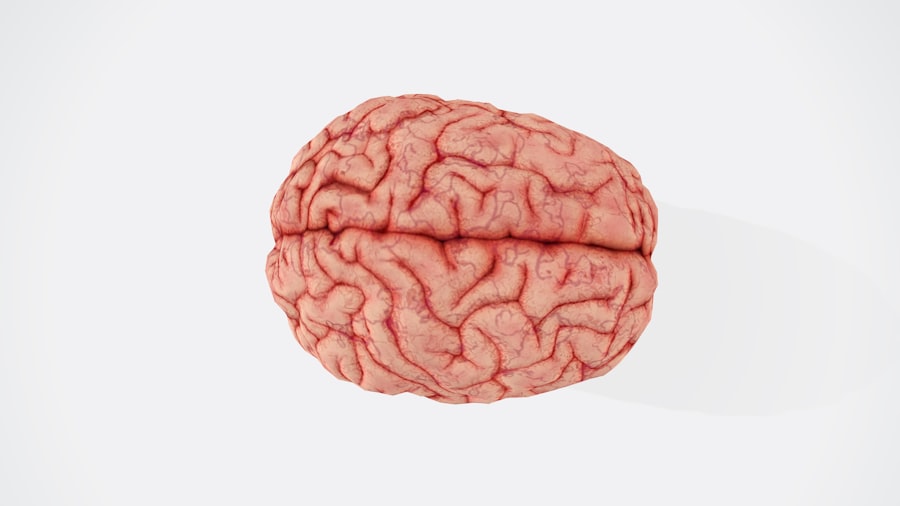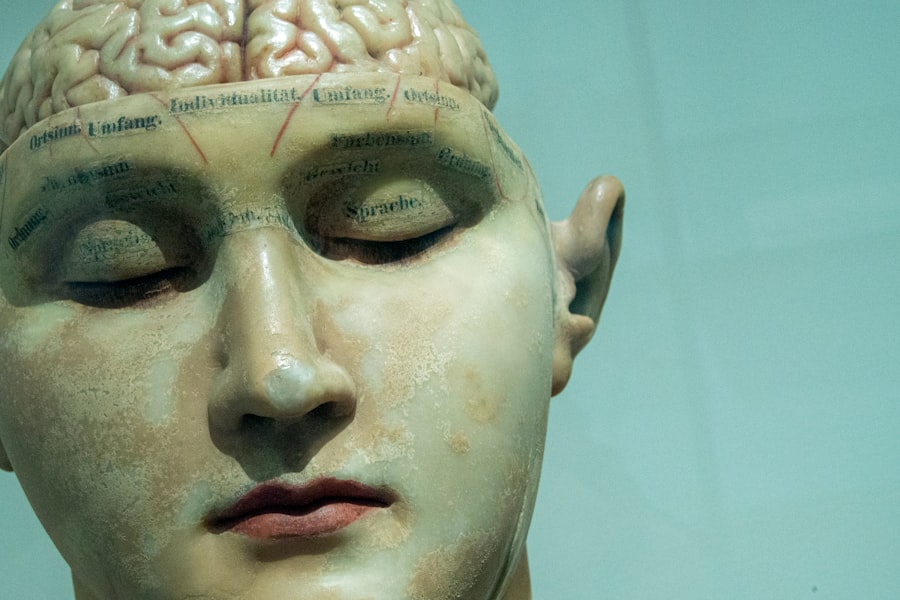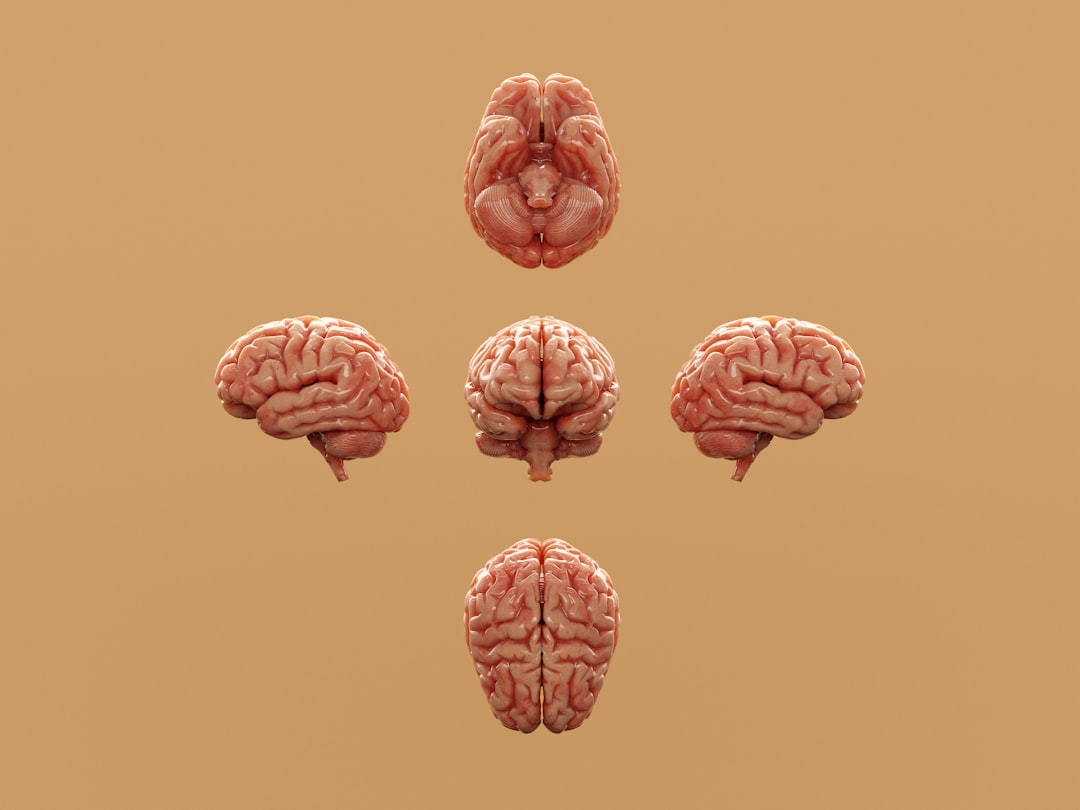As you navigate through the golden years of your life, the importance of maintaining a sharp mind becomes increasingly evident. Aging is a natural process that brings about various changes in your body, including your brain. However, just because you are getting older does not mean you have to accept cognitive decline as an inevitable part of life.
In fact, there are numerous strategies you can adopt to keep your brain functioning at its best. By understanding the significance of mental acuity and actively engaging in practices that promote cognitive health, you can enhance your quality of life and maintain independence well into your later years. Keeping your brain sharp is not merely about staving off memory loss; it’s about enriching your life experience.
A healthy brain allows you to engage fully with the world around you, fostering creativity, problem-solving skills, and emotional resilience. As you age, the ability to think critically and adapt to new situations becomes even more crucial. By prioritizing cognitive health, you empower yourself to enjoy a fulfilling life, filled with learning, social interactions, and personal growth.
Key Takeaways
- Keeping your brain sharp as you age is crucial for overall cognitive health and quality of life
- Regular physical activity has been linked to improved cognitive function and can help keep your brain sharp
- Engaging in mental exercises such as puzzles and brain teasers can have significant benefits for brain health
- Prioritizing adequate sleep is essential for improving cognitive function and maintaining a sharp brain
- Maintaining a healthy diet is crucial for brain health and can have a significant impact on cognitive abilities
Stay physically active: The link between exercise and cognitive function
Engaging in regular physical activity is one of the most effective ways to support your cognitive function as you age. Research has consistently shown that exercise promotes blood flow to the brain, which is essential for delivering oxygen and nutrients necessary for optimal brain health. When you engage in activities like walking, swimming, or even dancing, you stimulate the release of neurotrophic factors that encourage the growth of new neurons and synapses.
Moreover, exercise has been linked to improved mood and reduced anxiety, both of which can have a profound impact on cognitive function. When you exercise, your body releases endorphins—often referred to as “feel-good” hormones—that can elevate your mood and reduce feelings of stress.
This emotional uplift can create a positive feedback loop; as you feel better mentally, you are more likely to engage in activities that further stimulate your brain. So, whether it’s a brisk walk in the park or a yoga class, incorporating physical activity into your daily routine can be a game-changer for your cognitive health.
Engage in mental exercises: The benefits of puzzles, brain teasers, and games

Just as physical exercise is vital for your body, mental exercises are crucial for keeping your brain sharp. Engaging in activities like puzzles, brain teasers, and strategy games can significantly enhance your cognitive abilities. These activities challenge your mind, requiring you to think critically and solve problems, which helps build neural connections and improve overall brain function.
Whether it’s a crossword puzzle or a game of chess, these mental workouts can be both enjoyable and beneficial. Additionally, mental exercises can help stave off cognitive decline by keeping your mind active and engaged. Studies have shown that individuals who regularly participate in mentally stimulating activities tend to have better memory retention and cognitive flexibility.
You might find joy in joining a book club or participating in trivia nights; these social aspects add another layer of engagement that can further enhance cognitive function. By making mental exercises a regular part of your routine, you not only challenge yourself but also create opportunities for social interaction and fun.
Prioritize sleep: How adequate rest can improve cognitive function
| Metrics | Data |
|---|---|
| Average hours of sleep needed for adults | 7-9 hours |
| Impact of sleep deprivation on cognitive function | Impaired memory, decreased attention span, reduced decision-making ability |
| Benefits of adequate sleep on cognitive function | Improved memory consolidation, enhanced problem-solving skills, better concentration |
| Recommended sleep hygiene practices | Avoiding screens before bedtime, maintaining a consistent sleep schedule, creating a comfortable sleep environment |
Sleep is often overlooked in discussions about cognitive health, yet it plays a critical role in maintaining sharpness as you age.
If you find yourself skimping on sleep, you may notice difficulties with focus, memory recall, and overall cognitive performance.
Prioritizing adequate rest is not just a luxury; it’s a necessity for optimal brain function. To improve your sleep quality, consider establishing a consistent sleep schedule by going to bed and waking up at the same time each day. Creating a calming bedtime routine can also signal to your body that it’s time to wind down.
This might include activities such as reading a book or practicing relaxation techniques like deep breathing or meditation. By making sleep a priority in your life, you set the stage for improved cognitive function and overall well-being.
Maintain a healthy diet: The impact of nutrition on brain health
What you eat has a profound impact on your brain health. A balanced diet rich in nutrients can help protect against cognitive decline and support overall brain function. Foods high in antioxidants, healthy fats, vitamins, and minerals are particularly beneficial for maintaining cognitive sharpness.
Incorporating plenty of fruits, vegetables, whole grains, lean proteins, and healthy fats—such as those found in fish and nuts—can provide the essential nutrients your brain needs to thrive. Moreover, certain dietary patterns have been linked to improved cognitive function. The Mediterranean diet, for example, emphasizes whole foods and healthy fats while limiting processed foods and sugars.
Research suggests that adhering to this type of diet may reduce the risk of developing neurodegenerative diseases like Alzheimer’s. By being mindful of what you consume and making healthier choices, you can significantly impact your cognitive health as you age.
Socialize regularly: The connection between social interaction and cognitive abilities

Social interaction is not just enjoyable; it’s also vital for maintaining cognitive health as you age. Engaging with others stimulates your mind and encourages emotional well-being. When you socialize—whether through family gatherings, community events, or simply chatting with friends—you activate various cognitive processes such as memory recall and problem-solving skills.
These interactions provide mental stimulation that can help keep your brain sharp. Additionally, socializing can combat feelings of loneliness and isolation that often accompany aging. Maintaining strong social connections has been linked to lower rates of cognitive decline and improved mental health outcomes.
Consider joining clubs or groups that align with your interests or volunteering in your community; these activities not only foster social connections but also provide opportunities for learning and growth.
Manage stress: The negative effects of chronic stress on the brain
Chronic stress can have detrimental effects on your brain health, leading to issues such as memory loss and decreased cognitive function. When you experience stress, your body releases hormones like cortisol that can interfere with the brain’s ability to form new memories and retrieve existing ones. Learning how to manage stress effectively is crucial for maintaining cognitive sharpness as you age.
Incorporating stress-reduction techniques into your daily routine can make a significant difference in how you feel mentally and emotionally. Practices such as mindfulness meditation, yoga, or even simple breathing exercises can help lower stress levels and promote relaxation. By taking proactive steps to manage stress, you create an environment conducive to better cognitive health.
Learn new skills: The importance of continuous learning for brain health
Embracing lifelong learning is one of the most effective ways to keep your brain engaged and sharp as you age. Learning new skills—whether it’s picking up a musical instrument, taking up painting, or studying a new language—challenges your brain in unique ways. This process not only enhances cognitive function but also fosters a sense of accomplishment and fulfillment.
Moreover, continuous learning encourages neuroplasticity—the brain’s ability to adapt and form new connections throughout life. Engaging in new experiences stimulates different areas of the brain and promotes mental agility. Consider enrolling in classes or workshops that pique your interest; this not only keeps your mind active but also opens doors to new friendships and social interactions.
Stay organized: The benefits of maintaining a structured and organized lifestyle
An organized lifestyle can significantly contribute to better cognitive function as you age. When your environment is cluttered or chaotic, it can lead to distractions that hinder focus and memory retention. By creating an organized space—both physically and mentally—you set yourself up for success in managing daily tasks and responsibilities.
Establishing routines can also enhance organization in your life. Whether it’s creating a daily schedule or using planners to keep track of appointments and tasks, these practices help reduce mental clutter and improve efficiency. By staying organized, you free up mental resources that can be redirected toward more meaningful activities that stimulate your mind.
Seek medical advice: When to consult a healthcare professional about cognitive health
While many strategies exist for maintaining cognitive health as you age, it’s essential to recognize when professional help may be necessary. If you notice significant changes in memory or cognitive function—such as confusion or difficulty completing familiar tasks—it may be time to consult a healthcare professional. Early intervention can be crucial in addressing potential underlying issues before they escalate.
Regular check-ups with your healthcare provider can also help monitor any changes in cognitive health over time. They may recommend screenings or assessments tailored to evaluate memory function or other cognitive abilities. By being proactive about seeking medical advice when needed, you empower yourself to take charge of your cognitive health journey.
The importance of implementing these tips and tricks for a sharp brain after 60
As you embrace the journey of aging, prioritizing cognitive health becomes paramount for enjoying a fulfilling life. By implementing strategies such as staying physically active, engaging in mental exercises, prioritizing sleep, maintaining a healthy diet, socializing regularly, managing stress, learning new skills, staying organized, and seeking medical advice when necessary, you equip yourself with the tools needed for a sharp mind after 60. The path to maintaining cognitive sharpness is not just about preventing decline; it’s about enriching your life experience through engagement and growth.
By taking proactive steps today, you set the stage for a vibrant future filled with learning opportunities and meaningful connections. Remember that every small effort counts; by nurturing your brain health now, you pave the way for an empowered and fulfilling life ahead.
As we age, maintaining cognitive health becomes increasingly important, and there are several strategies to keep your brain sharp after 60. Engaging in regular physical exercise, maintaining a balanced diet rich in omega-3 fatty acids, and staying socially active are all beneficial practices. Additionally, mental exercises such as puzzles, reading, and learning new skills can significantly contribute to cognitive vitality. For more detailed insights and tips on this topic, you can explore a related article on how to keep your brain sharp by visiting Explore Senior Health. This resource offers a wealth of information tailored to senior health and wellness, providing practical advice to help you maintain a sharp mind as you age.
WATCH THIS! 🧠 Stop Senior Moments: The Golden Spice That Reverses Memory Loss
FAQs
What are some ways to keep your brain sharp after 60?
Some ways to keep your brain sharp after 60 include engaging in regular physical exercise, maintaining a healthy diet, getting enough sleep, staying socially active, and challenging your brain with activities like puzzles, reading, and learning new skills.
How does physical exercise help in keeping the brain sharp after 60?
Physical exercise helps keep the brain sharp after 60 by increasing blood flow to the brain, reducing the risk of conditions like stroke and diabetes that can affect brain health, and promoting the growth of new brain cells.
What role does a healthy diet play in keeping the brain sharp after 60?
A healthy diet plays a crucial role in keeping the brain sharp after 60 by providing essential nutrients like omega-3 fatty acids, antioxidants, and vitamins that support brain health and function.
Why is it important to get enough sleep for maintaining brain sharpness after 60?
Getting enough sleep is important for maintaining brain sharpness after 60 because sleep allows the brain to consolidate memories, clear out toxins, and recharge for optimal cognitive function.
How does staying socially active contribute to keeping the brain sharp after 60?
Staying socially active contributes to keeping the brain sharp after 60 by providing mental stimulation, reducing the risk of depression and anxiety, and promoting overall brain health through positive social interactions.
What are some brain-challenging activities that can help keep the brain sharp after 60?
Brain-challenging activities that can help keep the brain sharp after 60 include solving puzzles, playing musical instruments, learning new languages, reading, and engaging in activities that require problem-solving and critical thinking.
